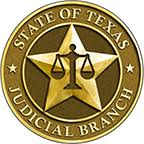After nearly two years of study, a Texas Supreme Court task force has recommended that the state adopt the Universal Bar Exam, an exam that essentially qualifies lawyers to practice in any state that accepts it.
If adopted, Texas would become the 30th state, in addition to the District of Columbia and the U.S. Virgin Islands, that would accept the results of the UBE for licensing without having to take a localized bar exam. The test has been endorsed by the American Bar Association and the National Conference of Bar Examiners.
 Known as The Task Force on the Texas Bar Examination, the group was created by Texas Supreme Court in June 2016 and headed by Dean Stephen M. Sheppard of the St. Mary’s University School of Law. The task force included four other deans of Texas law schools, three members of the Texas Board of Law Examiners, two law professors, a past chair of the State Bar of Texas, a past chair of the Texas Young Lawyers Association and Justice Jeff Brown of the Texas Supreme Court.
Known as The Task Force on the Texas Bar Examination, the group was created by Texas Supreme Court in June 2016 and headed by Dean Stephen M. Sheppard of the St. Mary’s University School of Law. The task force included four other deans of Texas law schools, three members of the Texas Board of Law Examiners, two law professors, a past chair of the State Bar of Texas, a past chair of the Texas Young Lawyers Association and Justice Jeff Brown of the Texas Supreme Court.
The UBE allows lawyers to practice across state lines without taking multiple bar exams. Growing acceptance of the UBE is particularly advantageous for law school graduates who are able to take the bar examination to qualify for licensing in their home state while seeking employment elsewhere. Moreover, acceptance in Texas would allow Texas lawyers to practice across state lines with a greater degree of ease than they currently enjoy.
Said the task force report: “Adoption of the UBE would not only be more efficient, it would also be of great benefit to Texas law graduates who wish to practice law elsewhere in addition to (or instead of) Texas. It would also better serve Texas residents who are in need of legal services, and who would therefore benefit from an easier path to practice in Texas for lawyers trained elsewhere. The Task Force thus favors adoption of the UBE, supplemented by a Texas-law component, in place of the current Texas bar exam.”
Since the UBE does not cover some unique specifics of legal ethics and distinctive features of the Texas Constitution, the task force recommended that the UBE be supplemented by a course or examination that includes Texas-specific questions, modeled after a similar approach taken by New York bar examiners.
“The Task Force believes that this approach would serve the interests of the State in determining which examinees are qualified to practice law,” the report concluded.
The UBE consists of three parts, including the 200-question Multistate Bar Examination which has been used in Texas for years. In addition, the UBE includes a Multistate Performance Test (MPT), which evaluates analytical and fundamental lawyering skills in two 90-minute problems and the Multistate Essay Examination (MEE)—which includes six questions written over six hours.
Although the UBE is, by definition, a universal examination, individual states determine what they consider a passing score. Scores set by the various states currently range from 260 to 280. Under the UBE a score of 270, as recommended by the Texas task force, would be roughly equivalent to the current passing score of 675 for the Texas bar exam.
Even if Texas accepts the UBE, it is not likely that the test would be administered until February 2020, giving Texas law schools time to adjust their curricula to the UBE. Moreover, the state must consider any additional requirements for UBE-qualified lawyers from other states who wish to practice in Texas.
According to the Task Force Report (found here), adoption of the UBE was unanimous, but but not completely whole-hearted. Two members of the task force expressed reservations about the continued use of the MBE as part of the UBE—because of the MBE’s use of multiple-choice questioning and its reliance on some subject matter not specifically relevant to the practice of law.
